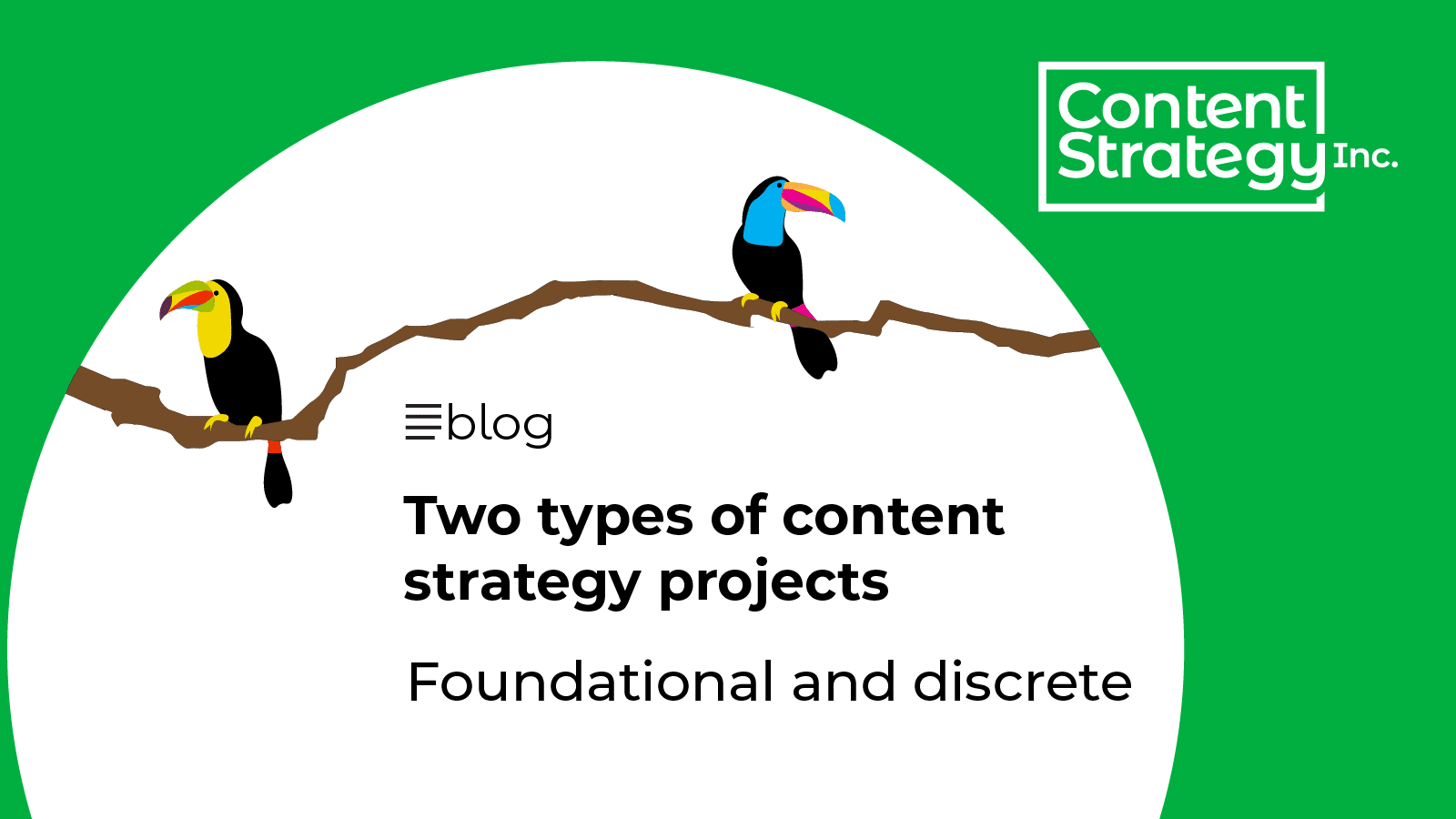I spend a lot of my time explaining to clients how content strategy is not a project, but an approach and a discipline. And yet, for most organizations, the way the work gets done is through projects. When you’re thinking about where to spend your content strategy time and money, and where you’re likely to see a meaningful return on your investment, it’s important to understand that not all kinds of projects are the same.
Foundational content strategy projects
Some content strategy projects are relevant to all areas of your content, and content practices. We call these foundational content strategy projects. These initiatives are designed to move your organization up the content maturity model. An example project aim might be improving customer experience by making information easier to find and more consistent across your entire web presence.
Foundational projects:
- Focus on how content is created and managed across its lifecycle
- Aim at improving overall quality and efficiency over time
- Include systems and support tools applied to content
- Impact long-term organizational goals
- Will evolve over time but won’t lose importance
- Will require changes to how people work
- Take more time and money than discrete initiatives
- Result in lower short-term ROI but higher long-term ROI than discrete initiatives
Many companies won’t have sufficient internal skills or the time to tackle these problems alone.
Discrete content strategy projects
Others are relevant only to specific audiences, purposes, or moments in time. These are discrete content strategy projects. Examples might include blog strategies or campaigns like encouraging people to use less electricity.
Discrete projects:
- Focus on what content is created and distributed
- Aim at achieving specific and immediate goals
- Focus on the content itself rather than systems and tools
- Minimally impact content not directly related to the initiative
- Impact short-term organizational goals
- Will lose importance over time
- Usually roll easily into how people currently work
- Take less time and money than foundational initiatives
- Result in higher short-term ROI but lower long-term ROI than foundational initiatives
Many companies have the internal skills and time required for these projects, but they may still work with vendors.
Budget approaches
We find it useful to separate initiatives this way not only because of the clear distinction in project purpose, but also because of the different approaches to budgeting.
While discrete projects are usually considered part of a department’s regular operating budget, foundational projects often require a larger budget, which is sometimes shared among departments. The process to get approval for foundational projects is slower and takes more effort.
Something to consider
When you’re trying to determine which content strategy initiative is best for your organization, knowing whether you’re looking at a foundational project or discrete project will help you determine how you need to approach it to be most successful.
Further Reading
Understanding the Content Maturity Model
Our Content Assess and Progress (CAaP) Method: A sneak peak
Free webinar recording on CAaP and the types of content strategy projects
